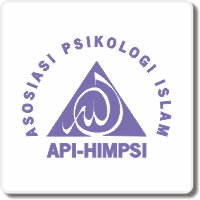Efektivitas Pelatihan Manajemen Stres Daring untuk Ibu dengan Anak yang Memiliki Gangguan Pemusatan Perhatian dan Hiperaktivitas (GPPH)
DOI:
https://doi.org/10.32923/psc.v4i2.3267Keywords:
ADHD, INTERVENTION, STRESS MANAGEMENT, MOTHER, PARENTING STRESSAbstract
Many treatments for children with ADHD have been carried out, but on the other hand parents who interact directly with them have not been given much specific intervention. Parents with ADHD children are basically prone to experiencing stress in parenting, especially mothers. Interventions need to be carried out to help mothers not feel like they failed in parenting and to prevent the stress effect for the development of their ADHD children. This research was conducted to provide stress management training to reduce the level of parenting stress experienced by mothers with children who have a diagnosis of ADHD. This research is in the form of an experiment by comparing the level of stress experienced by mothers with GPPH children before and after being given training. Training is given over three days for approximately nine hours. Respondents in this study were 10 mothers with ADHD children who had moderate and severe levels of parenting stress based on a parenting stress measurement tool (Daulay & Hadjam, 2020). The results of the dependent t-test in this study were 0.000 <0.05. The results showed that there were differences in parenting stress levels before and after being given stress management training. Therefore stress management training is considered to be able to reduce the level of parenting stress experienced by mothers with ADHD children.
Downloads
Published
Issue
Section
License
Copyright Notice
The Psychosophia: Journal of Psychology, Religion, and Humanity is under the Creative Commons Attribution 4.0 International (CC-BY 4.0) License, according to which:
1) Authors retain copyright and grant the journal the right to first publication, with the work simultaneously licensed under the Creative Commons Attribution (CC-BY 4.0) that allows the sharing of articles published with the acknowledgment of authorship and the initial publication in this journal.
2) The authors are authorized to make additional contracts separately for distribution of the version of the work published in this journal (for example, publication in an institutional repository or as a chapter of the book), as long as there is recognition of authorship and initial publication in this journal.
3) Authors are authorized and encouraged to publish and distribute their work online (for example, in institutional repositories or on their personal pages) at any time before or during the editorial process, as it increases the impact and reference of the published work.






